Non-Western Worldview
Re: Non-Western Worldview
Nobody can be "forced" to become an imperial power. Russia always was an imperial power-- the only way a state could arise and survive at the juncture of other empires like the Mongols, Tatars, Swedes, and Polish-Lithuanian Commonwealth was to behave like an empire itself. All the more so because it lacked significant natural borders, and could be attacked at any time from any direction: expansion was essential to survival. Once post-Soviet Russia had passed through the Gorbachev-Yeltsin era contraction, the Russian empire was bound to become resurgent in any case.Pratyush wrote:
That's because the idiots in western Europe and USA didn't leave Russia with any choice but to become an imperial power again.
Talk about doing everything to make your worst fears come true due to your own actions.
What the West has done is force Putin to show his hand at a certain time (with the invasion of Ukraine in Feb/March 2022). DC, London etc. calculated that it's better for Putin to start a Ukraine war on their time table rather than waiting for the most opportune time by his own assessment. It remains to be seen what the long-term or even medium-term effects of that will be.
Re: Non-Western Worldview
They may have planned to try and stampede putin much earlier but trump got in their way by getting elected and that put paid to the deep state plans.Rudradev wrote:Nobody can be "forced" to become an imperial power. Russia always was an imperial power-- the only way a state could arise and survive at the juncture of other empires like the Mongols, Tatars, Swedes, and Polish-Lithuanian Commonwealth was to behave like an empire itself. All the more so because it lacked significant natural borders, and could be attacked at any time from any direction: expansion was essential to survival. Once post-Soviet Russia had passed through the Gorbachev-Yeltsin era contraction, the Russian empire was bound to become resurgent in any case.Pratyush wrote:
That's because the idiots in western Europe and USA didn't leave Russia with any choice but to become an imperial power again.
Talk about doing everything to make your worst fears come true due to your own actions.
What the West has done is force Putin to show his hand at a certain time (with the invasion of Ukraine in Feb/March 2022). DC, London etc. calculated that it's better for Putin to start a Ukraine war on their time table rather than waiting for the most opportune time by his own assessment. It remains to be seen what the long-term or even medium-term effects of that will be.
One thinks it likely that the pandemic and its aftermath that left turmoil and churn in its wake may not have been gamed adequately particularly concerning the food, energy, and economics.
The afghan debacle left the amerikis looking weak and untrustworthy leading to a major credibility crisis in the global leadership matrix that the amerikis have not been able to adequately address or overcome.
Xi and the cheeni troubles have only further complicated matters. NATO has been virtually neutered, leading to the EU looking for a way out of an impasse that the amerikis have needlessly precipitated and dumped on them.
After the two world wars, the whites will never fight a battle on their own lands or even somewhere closer to their homes, they all prefer syria and iraq as battlefields. The amerikis have two huge oceans protecting their homelands.
no one seems to give a rats about ameriki sanctions anymore and that is a new low for the amerikis. They also have a demoralized, jaded and disgruntled military to deal with and that will not be easy for them to address
The saudis are not even taking biden's calls anymore, making him an international joke.
Re: Non-Western Worldview
i do not know whether this is the right thread given the primacy that we have attached to understanding the chinese; perhaps an exclusive thread focussing just on that would be warranted instead of lumping in with other thought streams, something for the admins to consider.
Focussing on the topic itself, i believe that the following site is a motherlode of information into chinese thought
https://www.readingthechinadream.com/
2) empire 1.0 faces 3 problems, whoever offers solutions to the 3 will from new empire 2.0, regional satrapy period of human history is at an end
Focussing on the topic itself, i believe that the following site is a motherlode of information into chinese thought
https://www.readingthechinadream.com/
Jiang Shigong, “The Internal Logic of Super-Sized Political Entities: ‘Empire’ and World OrderThis web site is devoted to the subject of intellectual life in contemporary China, and more particularly to the writings of establishment intellectuals. What you will find here are essentially translations of Chinese texts that my collaborators and I consider important.
The site organizes our translations in a variety of ways.
1) The Maps menu follows the nomenclature used by Chinese intellectuals and regroups intellectuals according to their affiliation: Liberal, New Left, New Confucian, other.
2) The People menu lists all intellectuals whose texts we have translated alphabetically, for ease of use.
3) The Projects menu regroups the texts in terms of intellectual or publication projects in which we are engaged, thus providing a larger context in which to understand the intellectuals and their work.
4) The Themes menu regroups the text by theme.
The text translated here is of a piece with Jiang’s earlier essay in that it suggests that a Chinese world empire is visible on the horizon. The basic argument is fairly simple: empires have always been the building blocks of regional political orders, even before the rise of imperialism made possible the construction of worldwide empires. The rise of ideas of sovereignty and the nation-state over the course of the modern period added new wrinkles to the construction and administration of empire, and blinded many to its ongoing importance, but empires have not disappeared, only changed in form and function.
Jiang’s blunt assertion is that empire—and particularly world empire, structured around markets, currencies, and superpower domestic policy masquerading as universal legal practice—is an inescapable part of the contemporary world.
“[The current state of world empire] faces three great unsolvable problems: the ever-increasing inequality created by the liberal economy; state failure, political decline, and ineffective governance caused by political liberalism; and decadence and nihilism created by cultural liberalism. In the face of these difficulties, even the United States has pulled back in terms of worldwide military strategy, which means that world empire 1.0 is currently facing a great crisis, and that revolts, resistance, and revolution from within the empire are unravelling the system.”
It was not very long ago that China’s New Left, most of whom, like Jiang, are thoroughgoing statists, trumpeted sovereignty as one of their guiding principles (for one example among many see, Wang Hui, “The Economy of a Rising China and its Contradictions”).
An important question in the realm of political thought today is the huge gap in mainstream discourse between the theoretical “expression” of a sovereign nation and the universal political practice of empires. This gap between theory and practice leads us to reflect on the conceptual system of the “nation-state,” and then to use the concept of “empire” to arrive at a new understanding of history and contemporary political life.
In contrast with the concept of “empire” in traditional ideological discourse, in this essay, I am using “empire” as a descriptive sociological concept to describe very large political systems that have existed universally throughout history. These systems possess an inner stability which is both complex and pluralistic, as well as a philosophical-intellectual and political drive to establish a kind of universalism, or in other words, an urge to universalize their own form and occupy an even larger space. In this sense, “empire” is a historical technique through which mankind has sought to manage universalism and particularity, as well as a motive force behind development and change.
At the present moment, the world finds itself at a crucial historical moment in the development and evolution of “world empire.” Only by beginning from the perspective of empire, and understanding the different forms empires assume as they evolve through history, can we transcend the ideology of the sovereign nation-state and understand the role that today’s China is playing in the historical evolution of world empire, and thus chart a course for China’s future.
Since late Qing times, the Chinese intellectual world has also experienced a thorough-going intellectual transformation, through which it began to construct and imagine the world political order on the basis of modern and contemporary Western political thought. The ideal vision of this world order is what we call the “Westphalian system” in which all “civilized nations” participate in the construction of the world order on equal terms as sovereign states.
Some countries (such as post-war Germany and Japan) were not constructed as fully sovereign nation-states even in the legal sense, because their constitutions were not established on principles of sovereignty, but instead on principles of international peace and international law. The origin of this category of “half-sovereign nation-state” lies in the status of Germany and Japan as losing countries in the hegemonic competition of empires.
From this perspective, the history of humanity is surely the history of competition for imperial hegemony, the history of unstinting competition between empires which has gradually propelled the form of empires from their original local nature toward the current tendency toward global empires, and finally toward a single world empire. Today’s globalization is both the product of imperial competition, as well as a particular form of empire.
Moreover, the political activities of sovereign nation-states are often guaranteed by the imperial order, and one might say that the order of sovereign nation-states is a special expression of the imperial order. If we set aside notions of imperial competition and the construction of the new imperial order, then we cannot even understand the concept of the sovereign nation-state. For this reason, we must re-examine history from the perspective of empire, and rethink the construction of sovereign nation-states from the perspective of the construction of imperial order.
If we take “homogenous countries” and “plural countries” as two ideal types of political order in the evolution of the history of civilization, then the history of humanity is the process of “state” and “empire” constantly and dialectically interacting, meaning that we find both the formation of plural empires through the military conquest of one homogenous nation by another, as well as imperial orders that have become homogenous nation- states through a long process of assimilating and integrating a plural imperial order, after which this homogenous state will set off on the path toward the construction of a new empire.
To take China as an example, in the early period of civilization, communities appeared and grew until they were like “stars filling the sky,”[3] and having gone through endless interaction and integration, finally came together to form separate tribes or tribal federations, which we might call local empires. Through constant competition, these unstable local empires finally became the regional empire of the Xia, Shang and Zhou, the nine states stably settled on the central plains. This Xia-Shang-Zhou empire only became a stable political, ritual and civilizational system after Confucian thought gave it a universal philosophical expression. The later imperial constructions of the Qin-Han, Sui-Tang, and Ming-Qing periods were civilizational renewals of this basic foundational pattern.
In the heartland areas, the backward, nomadic lifestyle was the main form of civilization, while peripheral areas were divided into four relatively advanced civilizational areas, with agriculture and commerce predominating: the regions of Chinese Confucian civilization, South Asian Hindu civilization, Arabic Islamic civilization, and European Christian civilization. We can see these five regional Eurasian civilizations as five relatively stable regional civilizational empires. These empires based their coherence on the natural elements of their geographic environments as well as certain spiritual elements of a philosophical or theocratic nature. Over a very long period of history, while specific incarnations of local empires rose and fell, these five regional civilizational empires achieved relative stability in their local area. Even today, thousands of years after their founding, these five regional civilizational empires continue to maintain a relative stability in terms of geographic space and character, which is testimony to the tenacity possessed by regional civilizational empires.
If we ask “how did European empires come to rule the world?” an important part of the answer is the modern nation-state system at the core of these imperial civilizations. It was precisely the decision by the various European peoples to abandon the form of the traditional empire of Christian civilization, as well as the constraints that religion and morality had once represented, and to concentrate instead on individual freedom and on the construction of the modern nation-state system, which created in these countries a new style of life as well as great economic, political and cultural strengths, which in turn continually founded colonies throughout the world, creating a new form of empire.
One could say that the Western nation-states built new empires at the same time as they abandoned the old ones, and that these new empires contained not only colonies, but also a system of international law. The completely new imperial form thus combined colonial law, national law, and international law, a two-faced composite made up of the nation-states and the colonies. The precondition for the construction of the Westphalian system of sovereign nation-states was always the globalized colonial system. Only those states that had obtained power through the struggle for colonial empires had the right to enter into the system of sovereign nation-states. It was only because the European powers could develop colonial empires at will in the “new territories” made available by the discoveries that the fragile balance of power of the Westphalian system could be maintained. Yet in the late nineteenth century, with the end of the period of great discoveries, the struggle among European colonial powers for world hegemony led to the eruption of the First World War, which hastened the end of the colonial imperial system, as well as the disintegration of the Eurocentric Westphalian system.
This tells us that ideological dichotomies in modern European thought between republicanism and autocracy, commerce and territory, freedom and despotism, in fact originated in dichotomies in the styles of governance employed by maritime and continental empires. These two different styles of rule, growing out of the different problems faced by continental and maritime empires, deeply influenced the world situation during the Cold War and even after.
The German and the Tsarist empires began developing their colonial empires in this context, and came to be caught up in the worldwide struggle. In a similar fashion, Japan, situated at the margin of the Chinese empire, was the first to “leave Asia for Europe”[6] and embrace the maritime world, building itself up as a colonial power and entering the worldwide competition. The two World Wars were the bloody struggle among all of the global colonial empires to build what they called a “single hegemonic world empire.”
reflected the competition between two models of “world empire:” one was the American model, which had inherited the new “imperialist” model developed by Great Britain’s late-period empire; and the other was the Soviet model, a stable political alliance which relied on a common belief in communism and in the leadership of the Communist Party among allied republics. In ideological terms, these two types of world empire were labeled “liberalism/imperialism” and “communism,” which in values terms came to be translated as “freedom” versus “equality,” but in terms of the imperial tradition, they still reflected the distinction between maritime and continental empires, the maritime empire exercising control through commerce and trade, and the continental empire through community morality.
Henceforth, no country will be able to exist outside of this system of global trade with its freedom, rule of law and democracy. Every country, whether it wants to or not, will of necessity be implicated in the construction of this world empire. The Chinese historian Tong Tekong 唐德刚 (1920-2009) often talked about the “three gorges of history 历史三峡,” which in essence also gets at the process of the “end of history” and “world empire.”[7] We might say that the globalization we live with today is the “single world empire” 1.0, the model of world empire established by England and the United States. In the future, each country must seek out its own developmental model from within this world imperial order of freedom, rule of law and democracy.
In fact, we can understand it as a struggle to become the heart of the world empire. This struggle could lead to the collapse and disintegration of the world imperial system, or to a change in who holds the ultimate power in the world empire, or even to the reconstruction of the system of world empire, but what will absolutely not happen is a return to the historical period marked by the existence of regional civilizational empires.
Even if Huntington saw the post-Cold War world situation as one of a “clash of civilizations,” and even if such civilizational conflicts overlap to some extent with the geographical distribution of the regional civilizational empires, we absolutely cannot confuse the two. What Huntington called a “clash of civilizations” is in fact merely a revolt against the world empire from within, which will necessarily develop within the system of the current “world empire,” just as it must necessarily develop within the universalist, “end of history” philosophical narrative of technology, trade and commerce, freedom and rule of law. For this reason, the future world can only advance and be reconstructed on this foundation, which cannot be thoroughly upended, unless the whole world returns to the world empire built by Islamic fundamentalism.
brief summary: 1) world will not revert back to regional hegemonic civilisations, for better or worse, all civilisations will and do contribute to a world empire based on the values of the world empire based on their ranking on the imperial order, contravention to vasudaeva kutambhakamaSince the twentieth century, the inevitable fate of humanity has been to enter into the world empire. No matter whether we see it as a source of “everlasting peace” or if we maintain our Communist expectations, and no matter how much we criticize and or deplore technological, economic and political hegemony, we cannot escape the arrival of the age of world empire. If we say that the origins of world empire can be traced to competition between regional civilizational empires, then today’s world empire 1.0 is the model of world empire shaped by Western Christian civilization.
The several thousand years of the history of mankind have witnessed only three great changes in imperial form, and each of these changes has been accompanied by great conflicts and chaos. At the same time, we cannot deny that these ages of historical transition have also created the opportunity for each civilization to construct world empire 2.0. The civilization that is able to provide genuine solutions to the three great problems facing world empire 1.0 will also provide the blueprint for world empire 2.0. As a great world power that must look beyond its own borders, China must reflect on her own future, for her important mission is not only to revive her traditional culture. China must also patiently absorb the skills and achievements of humanity as a whole, and especially those employed by Western civilization to construct world empire. Only on this basis can we see the reconstruction of Chinese civilization and the reconstruction of the world order as a mutually re-enforcing whole.
2) empire 1.0 faces 3 problems, whoever offers solutions to the 3 will from new empire 2.0, regional satrapy period of human history is at an end
Re: Non-Western Worldview
The chinese can ramble about the future world order as much as they want. At the end of the day you are selling a psychology to the masses. In other words will the world accept a rights based order vs one based on family and kinship ties. Science and technology will continue to change the way we look at government and our interactions with each other.
Re: Non-Western Worldview
imo, the essay by the political commentator portrays that there is some intellectual segment present in china that has a competing viewpoint on the end goal on the chinese political state, china has been quite vocal for some time now on the emergence of the multipolar world and its rightful place in world polity in the current scenario, but the above states that some believe that this would not be the optimum outcome of the world system currently in place. This also adds a data point that both the us and the china are opposed to a multipolar system, see post below:RoyG wrote:The chinese can ramble about the future world order as much as they want. At the end of the day you are selling a psychology to the masses. In other words will the world accept a rights based order vs one based on family and kinship ties. Science and technology will continue to change the way we look at government and our interactions with each other.
viewtopic.php?f=1&t=6825&start=2920#p2583909
Now lets look at the competing viewpoints currently:
1) india states - multipolar world emergence underway, preferred position
2) The us national security paper argues that multipolarity has been tried before, with the previous pentarchy and it led to ww1, everlasting peace and hence human development cannot be accomplished by competing regional stalwarts. the power differential will eventually lead to war, the only way forward is a system-of-systems, wherein the regional powers are intially roped in via a mini-lateral agreement, such as quad, which will eventually morph into an alliance agreement
3) the above chinese position contends that the world polity is caught in a current where reversal to a regional supremacy, the multipolarity, is unachievable, human integration has become too interlinked, but the us world empire is also imperilled, an alternative could prove to be a winner, the only way forward is an alternative empire based on a different set of values
looking at the above, india is alone in its demand of a multipolar world, who else stands besides us?
russia - does not forward any world polity contract at this point, content to act out its heartland viewpoint in place of its civilisation viewpoint
eu - laughable, under control of its mongrel master
japan - greatest case of stockholm syndrome ever witnessed on a large scale
the only hope is from the meds and the neo-meds, latin america, islamists, the other competing power of the heartland do not consent to any alliance with people following a 'beastly religion'
Re: Non-Western Worldview
Thats why India is rallying the global south behind it. Will it be enough ? Time will tell.
Re: Non-Western Worldview
https://www.readingthechinadream.com/ba ... ation.html
Bai Tongdong, “The Margins of Civilization—Reflections on the Historical Position of Chinese Civilization and the Progress of Human Civilization”
Bai Tongdong, “The Margins of Civilization—Reflections on the Historical Position of Chinese Civilization and the Progress of Human Civilization”
In any event, we are all familiar with the oft-repeated notion that China is the “world’s only continuous civilization,” as well as various and sundry claims about the uniqueness of China’s civilization. Bai Tongdong argues, in a nutshell, that such claims are at best only partly true. Civilization developed first in ancient Egypt and Mesopotamia, and China, happily located at the far eastern margin of Eurasia, was well situated to take advantage of such developments, if at a significantly later date.
Thus if China was a full participant in the “axial age” (approx. 500-300 BCE) when most religious and philosophical traditions took shape throughout East Asia, it cannot legitimately claim to be one of the “founders of civilization,” whatever role China subsequently played in the development of civilization elsewhere in East Asia. Similarly, Chinese civilization was not really “continuous” in that parts of China were often ruled by foreign conquest regimes, one of which, the Mongol Yuan, seriously derailed the progress of Chinese civilization, greatly influencing the subsequent development of Chinese political history in a largely negative fashion. Furthermore, Bai insists, to the extent that “China ruled supreme” in East Asia, this was the result of a lack of regional competitors which, in the long run, left China somewhat self-satisfied and unprepared to rise to the “challenge” of the modern West.
“The Chinese case occupies a special place in this picture of human civilization. It was not the cradle and center of early human civilization, but neither was it completely outside of this civilization. China was connected to this center through the Eurasian steppes. Thus, Chinese civilization can be said to be at the margins of civilization.
In another work by Xu Hong, The Earliest China, he points out that Erlitou, the birthplace of this earliest China, was located precisely at the point of intersection between different forms of agriculture, between agriculture and animal husbandry, between tool cultures, and between different geographical environments. The intersection Xu describes is an example of the kinds of exchange required for the development of civilization discussed earlier, occurring in a relatively concentrated area. This intersection made an important contribution to the emergence and development of a regional civilization.
Our adoption or development of all four of these inventions came at least a thousand years later in than the ancient civilizations of ancient Egypt and Mesopotamia.
In other respects, during what are known as the Xia and Shang periods, Chinese civilization also lagged significantly behind the ancient civilizations on the eastern shores of the Mediterranean Basin. Our large cities did not appear until around 2000 B.C. In contrast, in Mesopotamia and ancient Egypt, this form of social and political organization had already existed for a thousand years or more. And as Xu Hong points out in What Makes China China, the cities of Mesopotamia and ancient Egypt not only appeared earlier, but were also significantly larger than those of ancient China, in the late Longshan period of 2000 B.C. (and the cities and "states" of ancient China in this period were significantly larger than those of later Central and South American civilized city-states).
But what we call Chinese civilization was in fact the result of a process. Before 2000 B.C., the land now known as China was home to a variety of different civilizations. However, setting aside the history of the Shang dynasty, especially the early and middle periods of this history for which records are scarce, once bronze was introduced into the region and writing was created, we can see that from the late Shang to the Zhou dynasty, the Shang and Zhou were virtually the only civilizations in the regions we came to call China that had writing and advanced bronze technology.
Especially after the expansion of the Zhou, when we arrive at the Warring States period and the Qin Dynasty, all other peoples and civilizations in the region had been gradually assimilated, driven away, or eliminated by the stronger civilization of the Central Plains. Except for those living in peripheral areas, the many peoples who had originally inhabited the area were assimilated into Chinese civilization, and different groups of people came to identify with that civilization actively or passively.
Thus we see that what we call China’s continuous civilization itself is the result of the evolution from the great variety which existed before 2000 B.C. to the single civilization established around the beginning of the Christian era. Many other civilizations that were originally in the vast area we now call China (they were mostly pre-Bronze Age, but also include some, like the Sanxingdui 三星堆, which had mastered bronze technology, but none had complex writing systems) were either integrated into mainstream Chinese civilization, or were completely driven away or destroyed.
Therefore, the continuity of Chinese civilization, while brilliant on its own terms, can also be understood as due to the lack of competitors at the same level in the world that was accessible to China.
In the Analects, Confucius said that the Zhou were the inheritors of two ages, by which he meant that the Zhou had absorbed the strong points of the Xia and the Shang. The glory of ancient Greece and later of ancient Rome was also due to their inheritance from two or more “ages.” The Chinese "ages" are in fact the expressions of a single Chinese civilization in different historical periods.
In other words, a century ago, Pirenne put forward the novel idea, widely accepted in Western or world history circles, that without Mohammed, Charlemagne, known as the father of Europe, would not have created the political, cultural and geographical concept of "Europe."
During the era of the dominance of Mediterranean civilization, Europe was merely a periphery of the Roman Empire, and not a separate political and cultural entity. And after the collapse of Mediterranean civilization, Western Europe had to wait hundreds of years before it once again assumed the legacy of ancient Greece and especially ancient Rome, which led us to regard ancient Greece and ancient Rome (wrongly) as European countries and European civilizations.
More generally speaking, after Chinese civilization became dominant in East Asia, the motivation to develop through competition gradually faded, and even some attributes of advanced civilization may have been lost at moments when the single “mother lode” suffered. This may be the deeper reason why China has been "backward" and "bullied" for the past nearly 150 years.
In the context of China’s supposedly having been “closed,” there are also those who argue that traditional China was a “super-stable” society, which is just as wrong as the closed-door theory. China's relatively slow political progress between the foundation of the empire in the 3rd century B.C. dynasties and its encounter with the modern West was not due to any super-stable system, but to the fact that there were no civilizational rivals in the world at hand. Even when a particular dynasty collapsed, there was no better civilizational option in the visible world, and the next dynasty would naturally return to the same beaten path.
Moreover, the particular path of the formation and development of traditional Chinese civilization was to be selective in what it adopted, for example, the Chinese version of Indian Buddhism eventually watered down its emphasis on logic and metaphysics.
note that the ming was the first southern chinese empire, the ohers before had been "northerners", the most obvious schism in the curent chinese polity, the straightforward northerner, influenced by the founding myth of the mongol and the jurchen, and the ritual- heavy heavy southerner, the actual descendants of the zhou, actually, not just metaphorically or philosophically. As the historian Qian Mu 钱穆 (1895-1990) pointed out, many of the institutions of the Ming and Qing dynasties were in fact influenced by the Mongols, which meant that much of the brilliant culture of the Song period, as well as the relatively tolerant political practices, had disappeared. The differences are striking when we look at the elegance of Song porcelain next to the vulgarity of Ming and Qing pieces, as well as the respect and protection accorded Song literati by the imperial power versus the court beatings, literary inquisitions, and even wanton killings suffered by their counterparts during the Ming and Qing.
Yet Chinese civilization is quite unique in terms of rituals and music, which gave rise to yet another interesting phenomenon. Whereas in the other three major civilizations and their successors, the military was an important symbol of state authority, the tripod, which was a symbol of state authority in China, came from the world of ritual practices.
In sum, post-Warring States period traditional China differed from Mediterranean civilization in that China faced limited competition with similarly developed civilizations in geographic proximity, although traditional Chinese dynasties can be said to have competed with multiple high-level civilizations over time. Civilizational exchange in traditional China can thus be described as having occurred in time rather than in space.
Re: Non-Western Worldview
In Let's Understand China thread I had posted the various dynasty maps of China.
Re: Non-Western Worldview
i do not know whether being "lord" of the dispossessed will avail tangible benefits in the great game, not saying that this path should not be pursued, i believe that india has shown its own template of its version of contract to the modern world, the directive principles of state policy (modified to suit an international milieu) is i believe india's vision as an alternative to the global empire, an amalgamation of all philosophical thoughts that formed the civilisation's spirit and of the outlook prevalent at the time of independence, essentially as a means of mitigating damages by colonialism; but as a means of fight for the greater heartland, i have not seen a tangible utilityCyrano wrote:Thats why India is rallying the global south behind it. Will it be enough ? Time will tell.

now there are only 5, 4 active, 1 passive power in contention:
1) christian west to the west/ northwest
2) confucian china to the east
3) islamic gathering to the south west
4) indic to the south
5) (passive) the tribalistic, shamanic grouping in the heartland itself
the tribes / cultures out of contention are:
1) innuit
2) polynesian
3) mestizo
4) aboriginal
5) collective grouping of khoisan, bantu, nilotes
as an aside, dugin did forward the theory of multiple heartlands based on the following quote:
Naturally, there is the Russian, Eurasian Heartland, but it cannot assert itself as Land Power alone. As follows, it is necessary to look attentively into a European Heartland, a European pole: for example, a Franco-Germanic alliance, or the Paris-Berlin-Moscow axis. Continental Europe can be seen as one Heartland which could and should be friendly towards the Russian Heartland, while being an independent phenomenon.
though this looks very similar to huntington's clash of civilisation
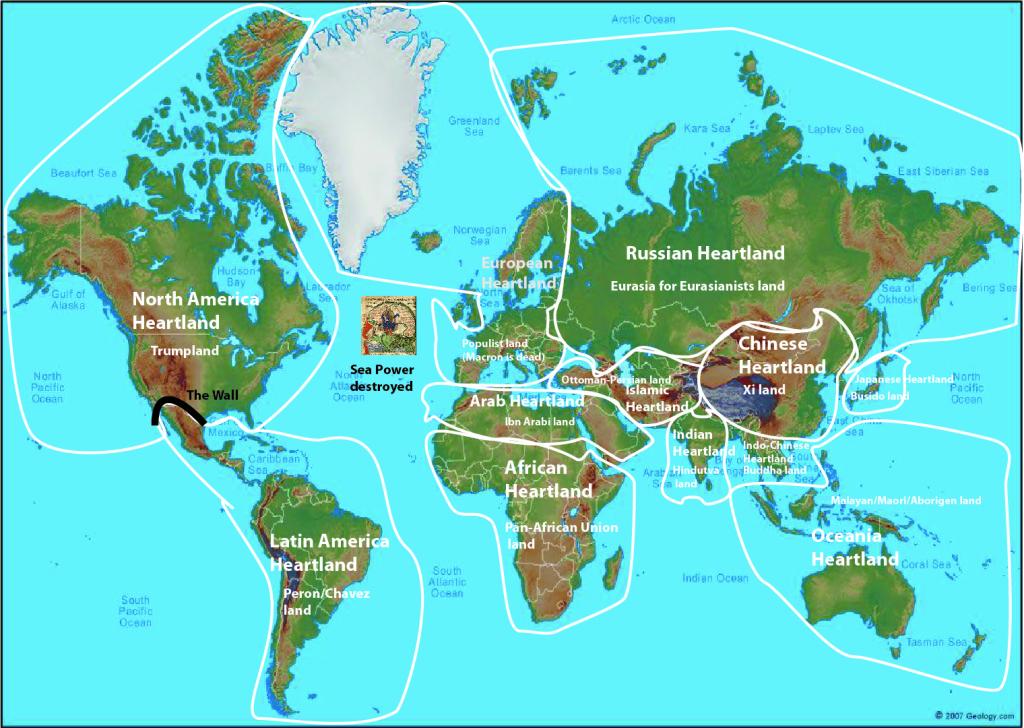
back to regular programming,
india's mapping with the powers:
1) china - buddhism, china had an identity crisis some centuries after buddhism was introduced, so much so that the idea of chinese thought contended it as "other" and forced itself to redefine its identity
2) islam - ...
3) christianised west - india had major relations with the pagan west, a two-way exchange, "common" empires, and then via the islamics, an exchange with the christianised west as well
every relationship counts, but imo, this tussle of power of the 5 is the only major game and each will try in the longer run that the supremacy of their vision, if not outright supremacy is acknowledged
Re: Non-Western Worldview
yes, hereramana wrote:In Let's Understand China thread I had posted the various dynasty maps of China.
viewtopic.php?f=1&t=6402&start=200#p2514159
(major dynasties lasting > 200 years)
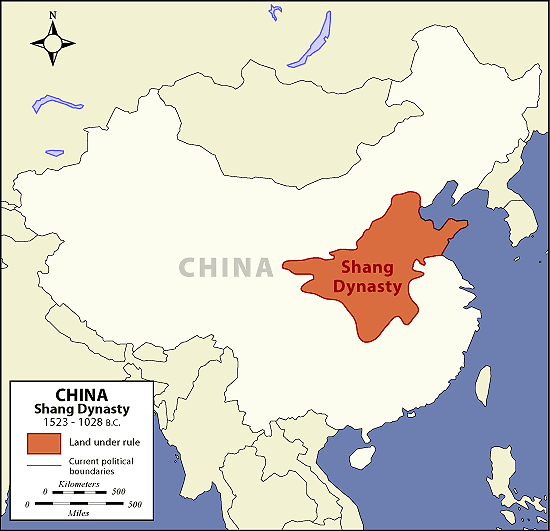
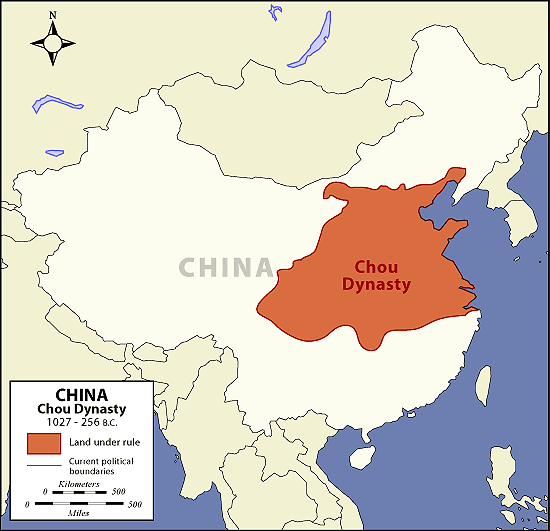
shang and zhou are the primarily important ones, the mythical xia is discounted, during these 2 dynasties the idea of china was completely formalised and the rituals and othering completed
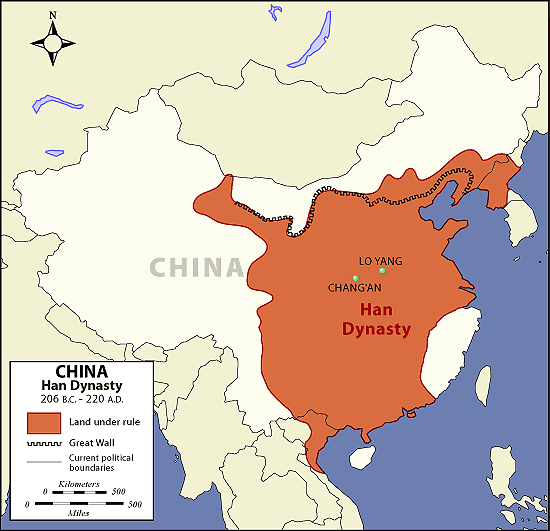
consolidation of power
capital - changan, luoyang, zuchang - solidly central china
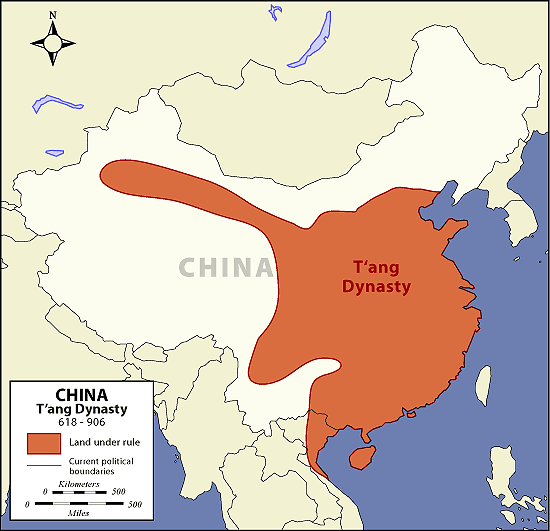
capital - changan, luoyang
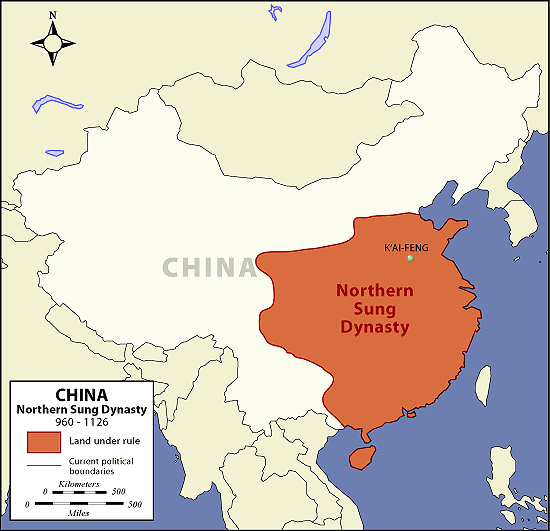
capital - east-central henan, continuation of previous dynasties, but moving to nanjing and evetually
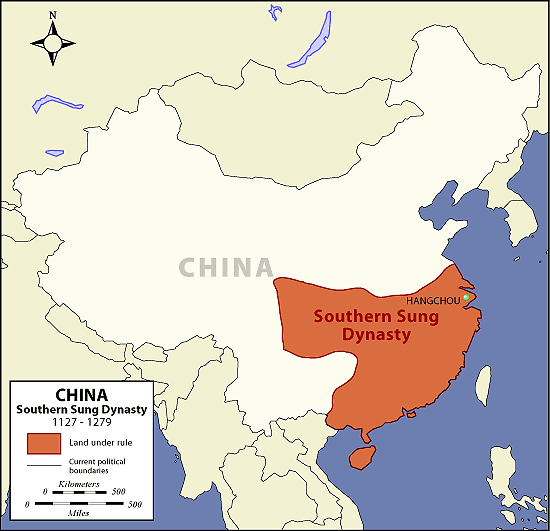
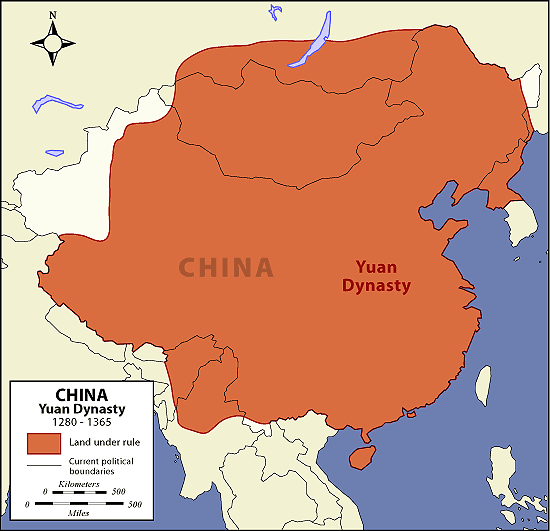
properly mongol
capital - all over the place, also including the famed karakorum
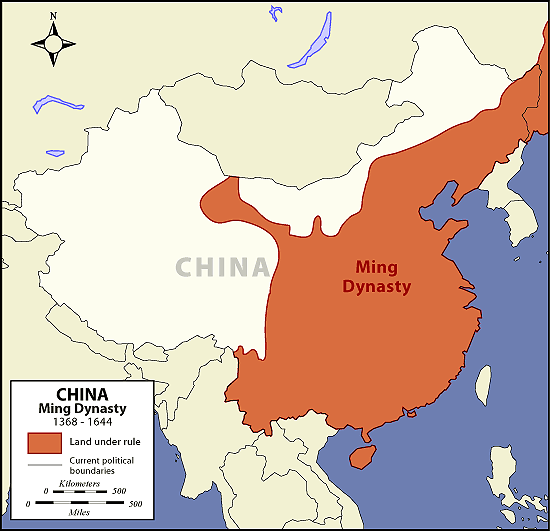

initial capital - nanjing
final capital - beijing
Re: Non-Western Worldview
I don't at all buy the heartland, rimland, periphery model thats distorted to appear falsely imposing thanks to Mercator projection.
The world dynamics are driven by people + geography, in that order.
The world dynamics are driven by people + geography, in that order.
Re: Non-Western Worldview
Geopolitics ties both together: People and geography.
If the geography doesn't suit the people migrate.
If the geography doesn't suit the people migrate.
Re: Non-Western Worldview
Kautilya and Non-Western IR Theory
Deepshikha Shahi
Deepshikha Shahi
The ancient Indian text of Kautilya’s Arthaśāstra comes forth as a valuable non-Western resource for understanding contemporary International Relations (IR). However, Kautilya’s Arthaśāstra largely suffers from the problem of ‘presentism’, whereby present-day assumptions of the dominant theoretical models of Classical Realism and Neorealism are read back into it, thereby disrupting open reflections on Kautilya’s Arthaśāstra which could retrieve its ‘alternative assumptions’ and ‘unconventional traits’. This book attempts to enable Kautilya’s Arthaśāstra to break free from the problem of presentism – it does so by juxtaposing the elements of continuity and change that showed up at different junctures of the life history of both ‘Kautilya’s Arthaśāstra’ and ‘Eurocentric IR’. The overall exploratory venture leads to a Kautilyan non-Western eclectic theory of IR – a theory that moderately assimilates miscellaneous research traditions of Eurocentric IR, and, in addition, delivers a few innovative features that could potentially uplift not only Indian IR, but also Global IR.
Re: Non-Western Worldview
Finally, BRF terminology of Non-Western World View goes mainstream.
Dr S. Jaihankar defines India as non-Western not anti-Western!!!
Dr S. Jaihankar defines India as non-Western not anti-Western!!!
Re: Non-Western Worldview
Chittaranjan Naik's book is darn good that further pushes Indian view of Realism.
Confession: It is a very tough to understand book. I am plowing a few pages at a time
https://www.amazon.com/Natural-Realism- ... ec188b7029
Confession: It is a very tough to understand book. I am plowing a few pages at a time
https://www.amazon.com/Natural-Realism- ... ec188b7029